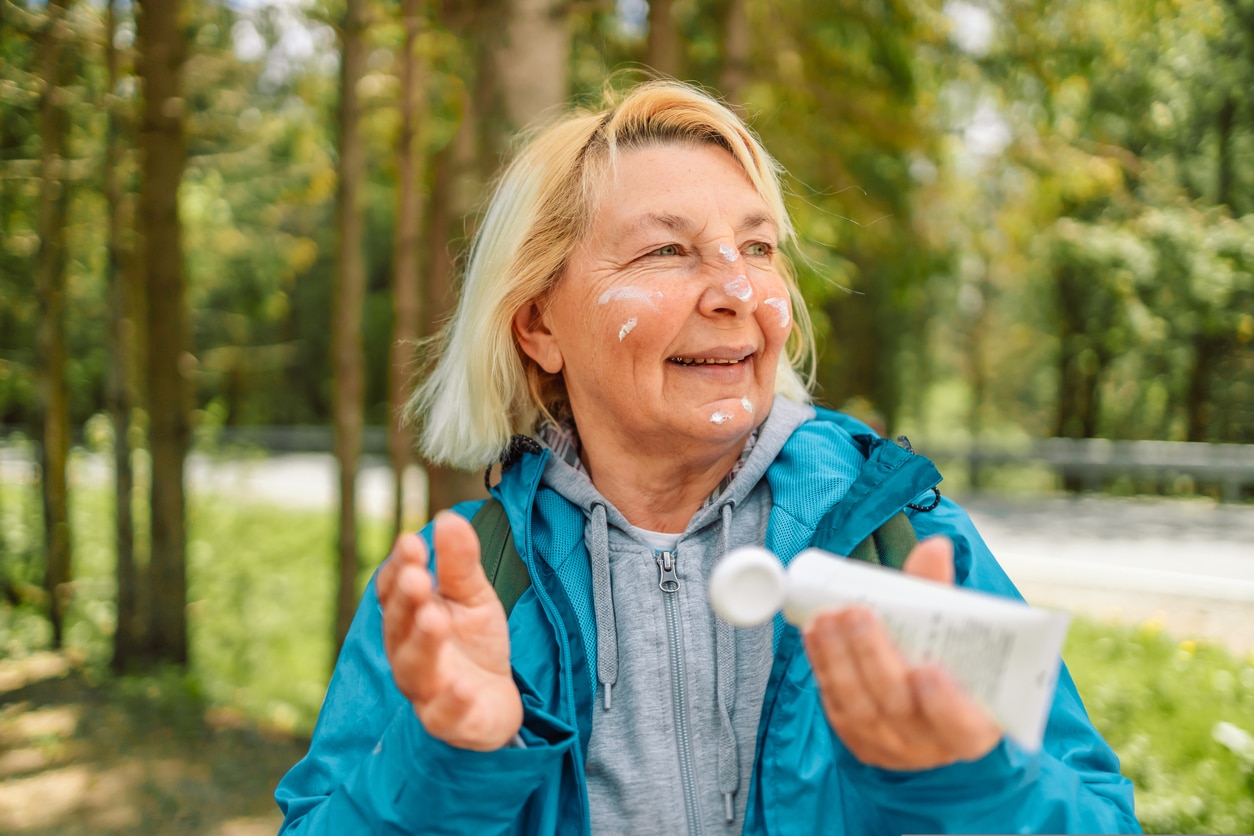Soaking up the sun by Lady Ann Lake or running around at the park are relaxing ways to spend your summer days. Knowing how to adequately protect yourself from sun exposure and its associated risks can help remove stress from your summer fun.
One possible risk factor for sun exposure is hearing loss. Let’s examine how the two are connected and what you can do to manage your risk for sun-induced hearing loss.
Sun Exposure Can Lead To Oxidative Stress

Sunlight is composed of visible, infrared and ultraviolet (UV) light. The UV rays found in sunlight can increase oxidative stress in the body.
Oxidative stress is a condition that occurs when there are too many unstable molecules, called free radicals, in the body and not enough antioxidants to get rid of them, leading to cell and tissue damage. While free radicals help fight infection, a surplus of them can begin to increase the process of aging.
A study on sun exposure as a risk factor for hearing loss tested the chronic sun exposure of 805 Japanese men and women. Sun exposure was assessed by the severity of photodamaged skin, manifested as skin wrinkling and hyperpigmentation. The analysis showed that the oxidative stress released from chronic sun exposure is a risk factor in the development of hearing loss.
Preventing sun exposure-induced hearing loss, as well as other associated risk factors such as skin cancer, should best be done through sun protection.
How to protect yourself from the sun
Protecting yourself from the sun helps prevent sunburn, oxidative stress-induced hearing loss, skin cancer, premature aging and more. Try to follow these tips for better sun protection:
- Wear sunscreen. Wearing chemical or mineral sunscreen, and reapplying every two hours, whenever you are exposed to the sun is crucial. Dermatologists recommend wearing a sunscreen with an SPF (Sun Protection Factor) of at least 30. SPF 30 will block 97% of the sun’s UVB rays. Higher SPF will block slightly more but cannot block 100%.
- Bring a hat or umbrella. Wearing a wide-brimmed sun hat with sunscreen will help keep the sun out of your face. For extra protection, an umbrella can help shade your head and torso.
- Wear long sleeves and pants. If you are extremely sensitive to the sun, think about wearing long sleeves and pants during days when you will be exposed to a lot of sun. Look for fabrics designed for sun protection. They will be cooler and block out more UVB rays.
- Limit time in the sun. Try and balance out those beach days with some less sunny activities to reduce sun exposure and oxidative stress. If you’re out for a lake vacation, think about setting up a sunshade over your spot on the beach to reduce direct contact.
Contact North Alabama ENT Associates today to speak to one of our hearing specialists about hearing loss prevention and treatment.